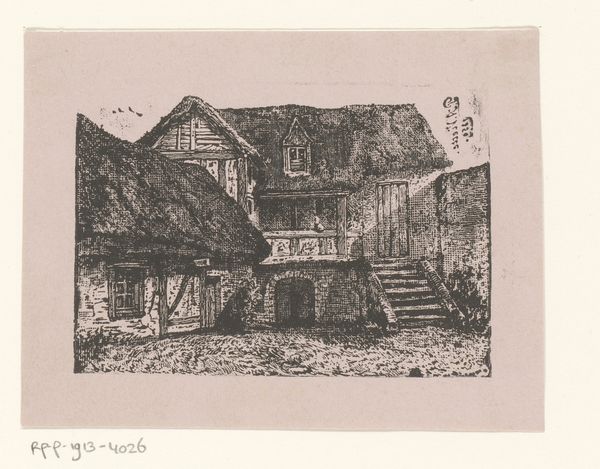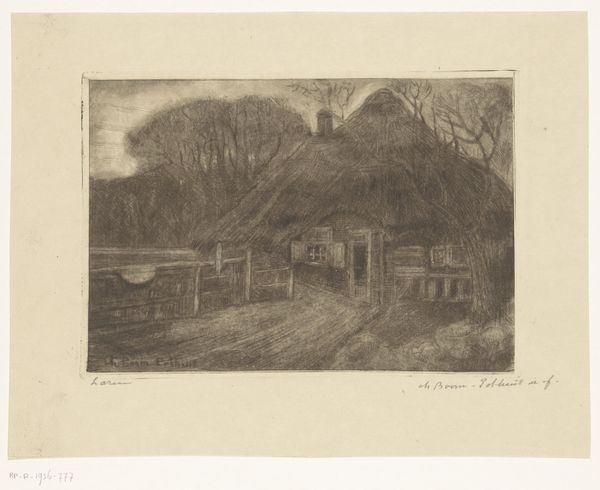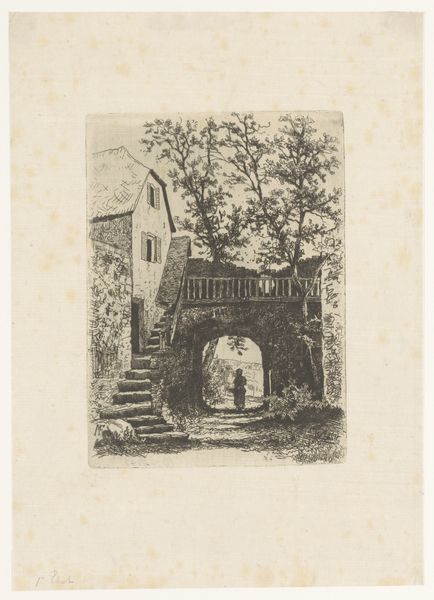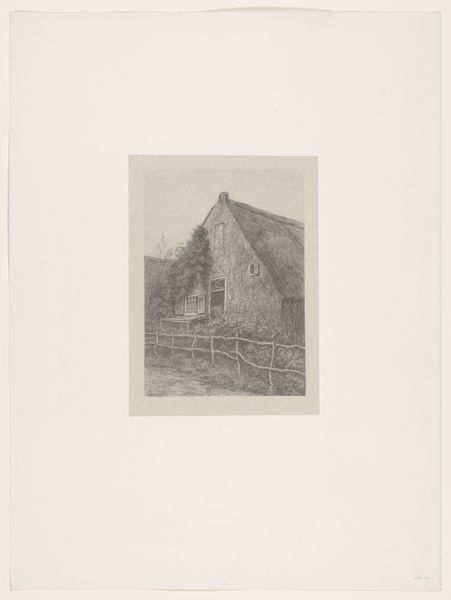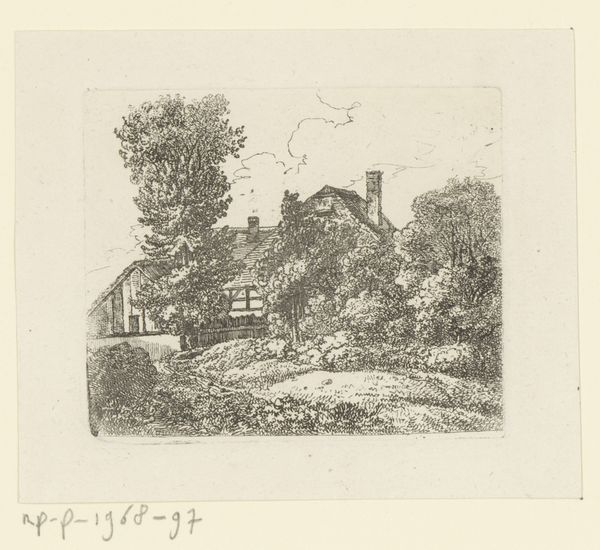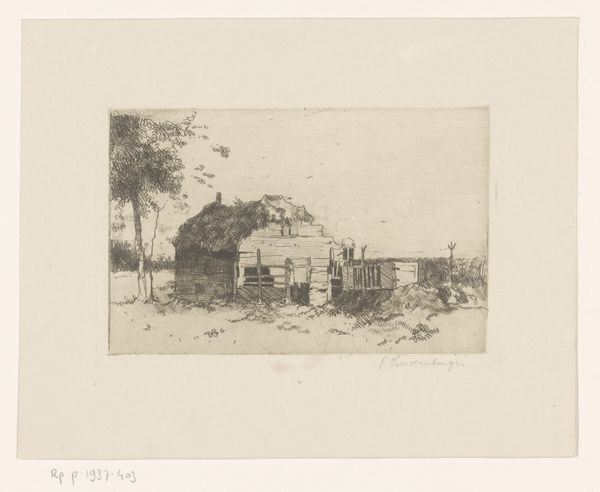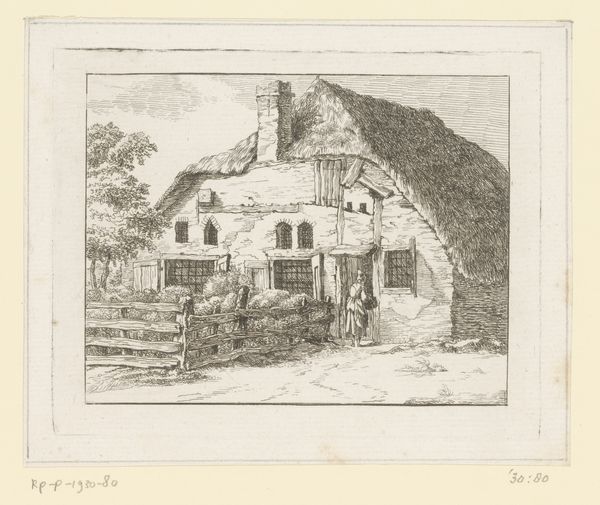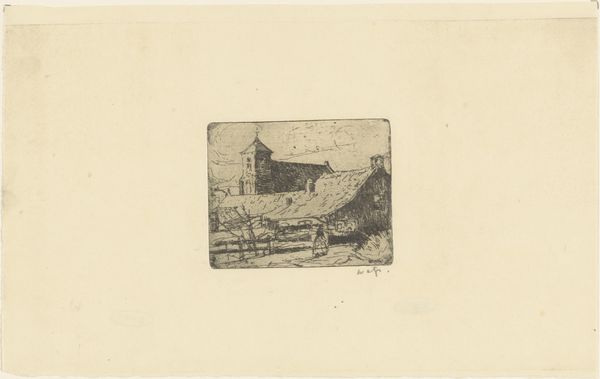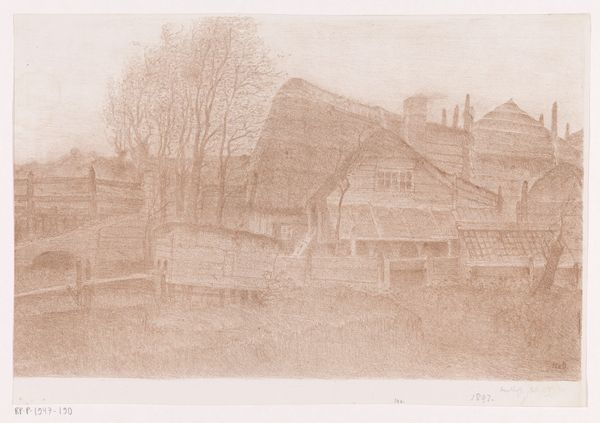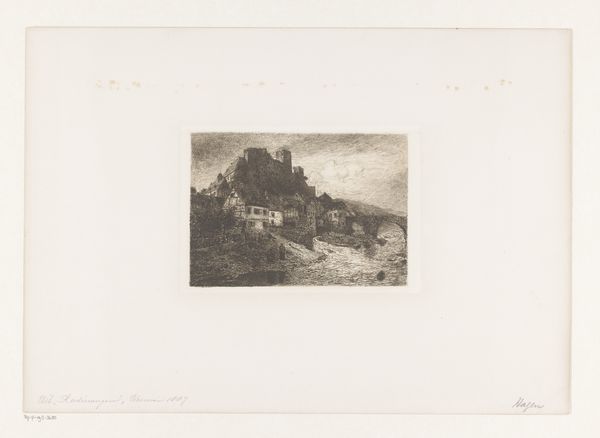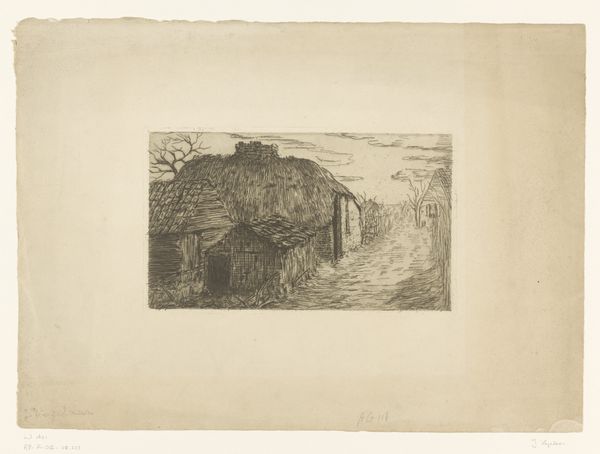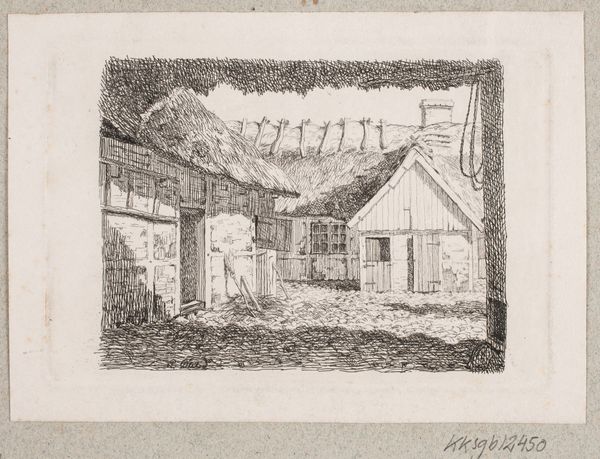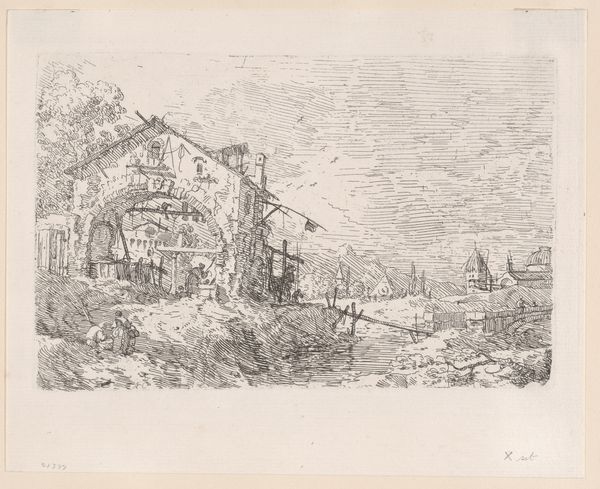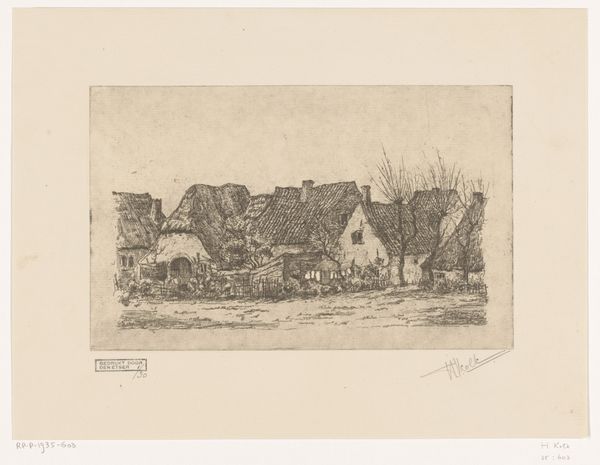
drawing, print, etching, engraving
#
drawing
# print
#
etching
#
pencil sketch
#
landscape
#
engraving
#
realism
Dimensions: height 70 mm, width 100 mm
Copyright: Rijks Museum: Open Domain
Polynice Auguste Viette produced this etching called 'Boerenwoning', meaning farmhouse, sometime in the mid-19th century. Viette, a French artist, has given us a glimpse into rural life, most likely in France. Images of rural life became increasingly popular at this time. Industrialisation was in full swing and these works can be seen as a form of ruralism, a nostalgic look at an idealised past. The houses are small, simple and intimate. The artist’s work might have been aimed at an urban elite, who were detached from this rural existence, and who perhaps yearned for a simpler time. Historians of art are social detectives, exploring how art is inextricably linked to social and institutional contexts. Primary sources such as letters and journals can reveal how artists related to social change. By studying these sources we gain insight into the role of art in society and the complex interplay between art and history.
Comments
No comments
Be the first to comment and join the conversation on the ultimate creative platform.
